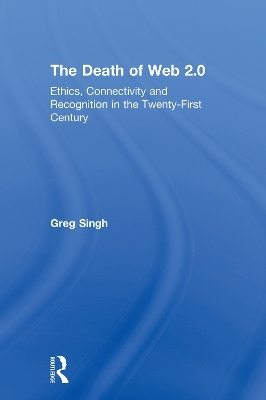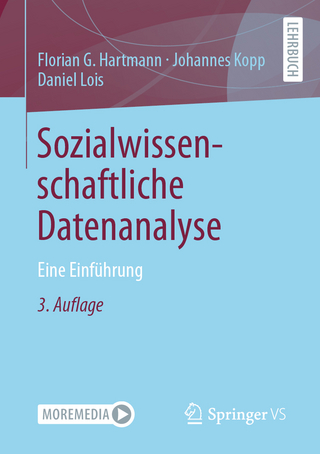
The Death of Web 2.0
Routledge (Verlag)
978-0-415-70379-6 (ISBN)
With all our contemporary connectivity, are we really connected? What does the nature of connectivity tell us about interpersonal and community relationships? What ethical concerns are raised through an always-on culture?
Communication in today’s world is characterised by a condition of persistent, semi-permanent connectivity, which seems to bring us closer together, but which can also be profoundly alienating. The Death of Web 2.0 takes a retrospective look at a moment in recent media history that has had, and will continue to have, a lasting impact upon the predominant attitude towards cultures of connectivity. Greg Singh draws from a range of approaches, intellectual traditions and scholarly disciplines to engage key questions underpinning the contemporary communications media ecosystem.
Bringing together influences from communitarian ethics, recognition theory and relational and depth psychology, Singh synthesises key approaches to produce a critical inquiry that projects the tensions at the heart of connectivity as a principle of Web 2.0. He argues that Web 2.0 is a cultural moment that is truly over, and that what is popularly described as 'Web 2.0' is an altogether different set of principles and practices. The Death of Web 2.0 recognises the consequences of our 'always-on' culture, where judgments are made quickly and where impacts can be far-reaching, affecting our relationships, wellbeing, mental health and the health of our communities, and it concludes by asking what an ethics of connectivity would look like.
This unique interdisciplinary work will be essential reading for academics and students of Jungian and post-Jungian studies, media and cultural studies and psychosocial studies as well as anyone interested in the social implications of new media.
Greg Singh is Associate Professor in Media and Communications and Programme Director of Digital Media at the University of Stirling, UK. His previous books include Film After Jung: Post-Jungian Approaches to Film Theory and Feeling Film: Affect and Authenticity in Popular Cinema (both Routledge), and he has also published on topics including celebrity, YouTube and lifestyle television. Greg is Co-Director of the RSE Life in Data Research Network and is a Senior Fellow of the Higher Education Academy and a Fellow of the Royal Society of Arts.
Acknowledgements
Introduction: Whatever happened to Web 2.0?
PART I: Connectivity and the spirit of conviviality
Chapter One
A communitarian disquisition on digital literacy
Chapter Two
Psychosocial dimensions of recognition in connectivity ethics
Chapter Three
Connectivity, creativity and other Web 2.0 myths
PART II: Recognition, self-realisation and the principle of mutuality
Chapter Four
Towards a recognition theory for social media interaction
Chapter Five
Towards a deep psychology of recognition and mutuality in always-on contexts
Chapter Six
Selfobjects and intersubjective mutuality in the contemporary media ecosystem
Chapter Seven
Social media as a false-self system
Conclusion: What would an ethics of connectivity look like? Some final notes of the death of Web 2.0
Bibliography
Index
| Erscheinungsdatum | 18.12.2018 |
|---|---|
| Zusatzinfo | 2 Tables, black and white |
| Verlagsort | London |
| Sprache | englisch |
| Maße | 156 x 234 mm |
| Gewicht | 426 g |
| Themenwelt | Mathematik / Informatik ► Informatik |
| Sozialwissenschaften ► Kommunikation / Medien ► Medienwissenschaft | |
| Sozialwissenschaften ► Soziologie ► Allgemeines / Lexika | |
| ISBN-10 | 0-415-70379-4 / 0415703794 |
| ISBN-13 | 978-0-415-70379-6 / 9780415703796 |
| Zustand | Neuware |
| Haben Sie eine Frage zum Produkt? |
aus dem Bereich


